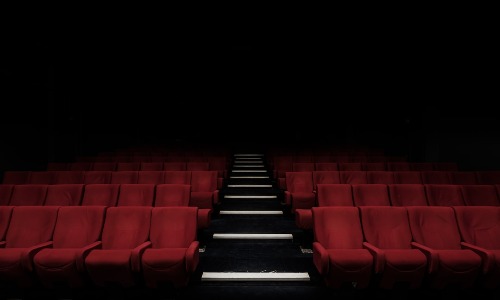Of all the late night television shows, my favorite is Stephen Colbert’s. He is goofy, talented, quirky, and improvisational.
He also happens to be living in my hometown, so I kind of claim him–if you know what I mean.
But a few days ago when I happened to be cruising the internet, I ran into Colbert in his Zoom Room–and I was shocked.
His virtual comedy wasn’t working. He looked like he was trying too hard. He was too cute, too self-interested, too eager to please, too loud–maybe even a bit rude.
Before the pandemic, and even way before that, he was God-like–endowed with superhuman faculties. But now, hunched in his little corner of a room, he was a mere mortal.
How could this be? My favorite comedian, a man I worship for his monumental talent and goodness, was melting like the wicked witch of the west.
His speaking used to delight me. Clever, brilliant, and a wonderful mimic with a clown’s face. I was tickled to the bone every time I sat down and watched him work.
But now his jokes died on the vine. They had no punch, yet he kept on dropping them like rotten apples.
Robert Zajonc (zye-unts) spent his career as a professor of psychology at the University of Michigan. He did work that helped settle the debate over “social facilitation”–or the effect of the presence of others on a person’s performance of a specific task.
Professor Zajonc found that when performers have mastered a skill, they are helped by the presence of an audience. But he also found that when performers have not yet mastered a skill, the existence of onlookers is a hindrance.
Stephen Colbert has mastered his skill and, as you might have guessed, his jokes were flopping because he had no audience.
You could say that Stephen did have a certain kind of audience, but it was an audience behind glass, and there is no “there” there. There is no roar of the greasepaint, no smell of the crowd. It is dull, dead, flat.
The State of New Jersey must shelter at home, so there he was, hunkered down with his family, along with a dozen technicians and maybe a few writers, unable to fully unfurl his magnificent comic gifts.
I called out to him, “Stop Zooming or WebXing or doing whatever you are doing. Take a break!”
To see a giant of late night TV so thwarted by the lack of an audience was like seeing Gulliver being held down by Lilliputians
The magic of comedy and tragedy, as well as the power of a good speech or presentation, is the presence of tension, anxiety, and the unexpected. In Stephen’s Zoom Room, there was no tension. No connection.
I would like to close this screed with a brief passage from Rosencrantz and Guildenstern are Dead, a play by Tom Stoppard. In the scene, two impoverished and desperate actors are bemoaning the time they lost their audience.
We pledged our identities, secure in the conventions of our trade that someone would be watching. And then, gradually, no one was. We were caught, high and dry…no one came forward. No one shouted at us. The silence was unbearable, it imposed itself upon us, it was obscene. We took off our crowns and swords and cloth of gold and moved silently on the road to Elsinore.
Remember, the audience is judge and jury. The audience holds the cards. Without an audience there is nothing–there is no speaker, there is no speech. So next time you need to present or speak, understand that you are doing it for your listeners. They will make or break you.
